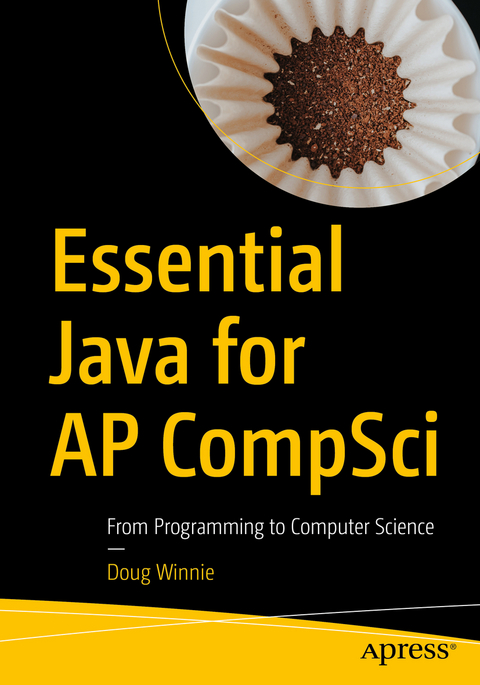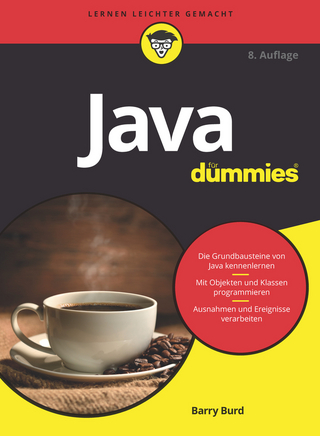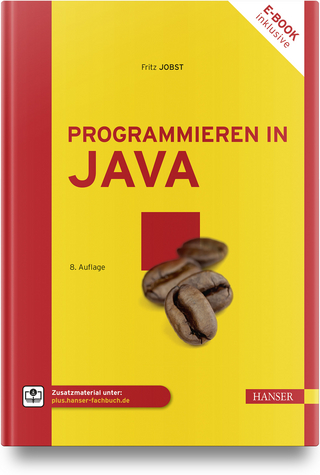
Essential Java for AP CompSci
Apress (Verlag)
978-1-4842-6182-8 (ISBN)
So when we learn programming we are going to focus on three things: what is the process; what is the syntax; and what is the flow. The process is represented as a flowchart. We will learn how to make these to help you plan out what you are going to do before you write a line of code. At first, the flowcharts will be pretty simple, but then they will get more complex. The syntax is the code: this is what you write that translates the process you create in a flowchart to the instructions that the computer can understand. Finally, there is the flow. This is where you trace through the code and see how the data and information it stores along the way changes. You can see how the operation of the program cascades from line to line. You will be building charts that will capture the programming flow so you can better understand how the computer processes code to make your next program easier to conceive and code.
Along the way to aid in the learning of the essential Java skills, there will be three kinds of project types throughout this book: business software projects for applications where you work for a company and need to complete an internal project for a team such as the sales, marketing, or data science teams; social good projects where you are working for non-profits or for agencies that are trying to research and provide solutions to economic, environmental, medical, or humanitarian projects; and game development projects for games basedon player input, random chance, or other mechanics for the use of entertainment.
What is unique about computer science is how it has become a skill, and not just a career. While there are jobs and titles of “computer scientist”, the skill of computer science, and specifically programming, are almost everywhere. After reading and using this book, you'll have the essential skills to think like a computer scientist, even if you are not. As a result you’ll be of greater value to your clients, your company, and yourself.
What You Will Learn
Discover the primary building blocks of programming using the Java programming language
See terminology and best practices of software development
Work with object-oriented programming concepts
Use common-language definitions and examples to help drive understanding and comprehension of computer science fundamentals
Who This Book Is For
Those who want to learn programming and want to think like a computer scientist. Ideal for anyone taking AP CompSci Complete.
Doug Winnie is director of learning experience at H&R Block, responsible for learning and development platforms supporting associates across the organization. Previously, Doug was principal program manager at Microsoft and LinkedIn leading the LinkedIn Learning instructor community, curriculum strategy for technology learning content, and as a member the Windows Insider team supporting educational and career growth for millions of Windows Insiders worldwide.Throughout his career and consulting with companies such as Adobe, PG&E, Safeway, HP, and the US Army, Doug has worked to help developers and designers through education, product management, and interactive development. Doug was honored with two Webby award nominations with projects for Industrial Light and Magic and has written multiple publications to teach beginners how to code. He is also an AP Computer Science teacher, teaching the next generation of developers. Doug lives in the Kansas City metro area and Palm Springs, California.
Sprint 01: Introduction.- Sprint 02: Setting Up The Java Jdk And Intellij.- Sprint 03: Setting Up Github.- Sprint 04: Programming Languages.- Sprint 05: History And Uses Of Java.- Sprint 06: How Java Works.- Sprint 07: Flowcharting.- Sprint 08: Hello, World.- Sprint 09: Simple Java Program Structure.- Sprint 10: Text Literals And Output.- Sprint 11: Value Literals.- Sprint 12: Output Formatting.- Sprint 13: Comments And Whitespace.- Sprint 14: Abstraction Of Numbers.- Sprint 15: Binary.- Sprint 16: Unicode.- Sprint 17: Variables.- Sprint 18: Math. Ugh..- Sprint 19: Math Functions.- Sprint 20: Managing Type.- Sprint 21: Random Numbers.- Sprint 22: Capture Input.- Sprint 23: Creating Trace Tables.- Sprint 24: Functions.- Sprint 25: Nested Functions.- Sprint 26: Functions And Values.- Sprint 27: Functions And Scope.- Sprint 28: Boolean Values And Equality.- Sprint 29: Simple Conditional Statement.- Sprint 30: Matching Conditions With The Switch Statement.- Sprint 31: The Ternary Operator.- Sprint 32: The Stack And The Heap.- Sprint 33: Testing Equality With Strings.- Sprint 34: Dealing With Errors.- Sprint 35: Documenting With Javadoc.- Sprint 36: Formatted Strings.- Sprint 37: The While Loop.- Sprint 38: Automatic Program Loops.- Sprint 39: The Do/While Loop.- Sprint 40: Simplified Assignment Operators.- Sprint 41: The For Loop.- Sprint 42: Nesting Loops.- Sprint 43: Strings As Collections.- Sprint 44: Make Collections Using Arrays.- Sprint 45: Creating Arrays From Strings.- Sprint 46: Multidimensional Arrays.- Sprint 47: Looping Through Multidimensional Arrays.- Sprint 48: Beyond Arrays With Arraylists.- Sprint 49: Introducing Generics.- Sprint 50: Looping With Arraylists.- Sprint 51: Using For…Each Loops.- Sprint 52: The Role-Playing Game Character.- Sprint 53: Polymorphism.- Sprint 54: Make All The Things…Classes.- Sprint 55: Class, Extend Thyself!.- Sprint 56: I Don't Collect Those; Too Abstract..- Sprint 57: Access Denied: Protected And Private.- Sprint 58: Interfacing With Interfaces.- Sprint 59: All I'm Getting Is Static.- Sprint 60: An All-Star Cast, Featuring Null.
| Erscheinungsdatum | 27.01.2022 |
|---|---|
| Zusatzinfo | 59 Illustrations, black and white; XIX, 327 p. 59 illus. |
| Verlagsort | Berkley |
| Sprache | englisch |
| Maße | 178 x 254 mm |
| Themenwelt | Informatik ► Programmiersprachen / -werkzeuge ► Java |
| Mathematik / Informatik ► Informatik ► Theorie / Studium | |
| Mathematik / Informatik ► Informatik ► Web / Internet | |
| Schlagworte | academic • ap • Code • compsci • Computer Science • CS • IT • Java • Placement • Problem Solving • programming • software development • source • Tech |
| ISBN-10 | 1-4842-6182-8 / 1484261828 |
| ISBN-13 | 978-1-4842-6182-8 / 9781484261828 |
| Zustand | Neuware |
| Informationen gemäß Produktsicherheitsverordnung (GPSR) | |
| Haben Sie eine Frage zum Produkt? |
aus dem Bereich


